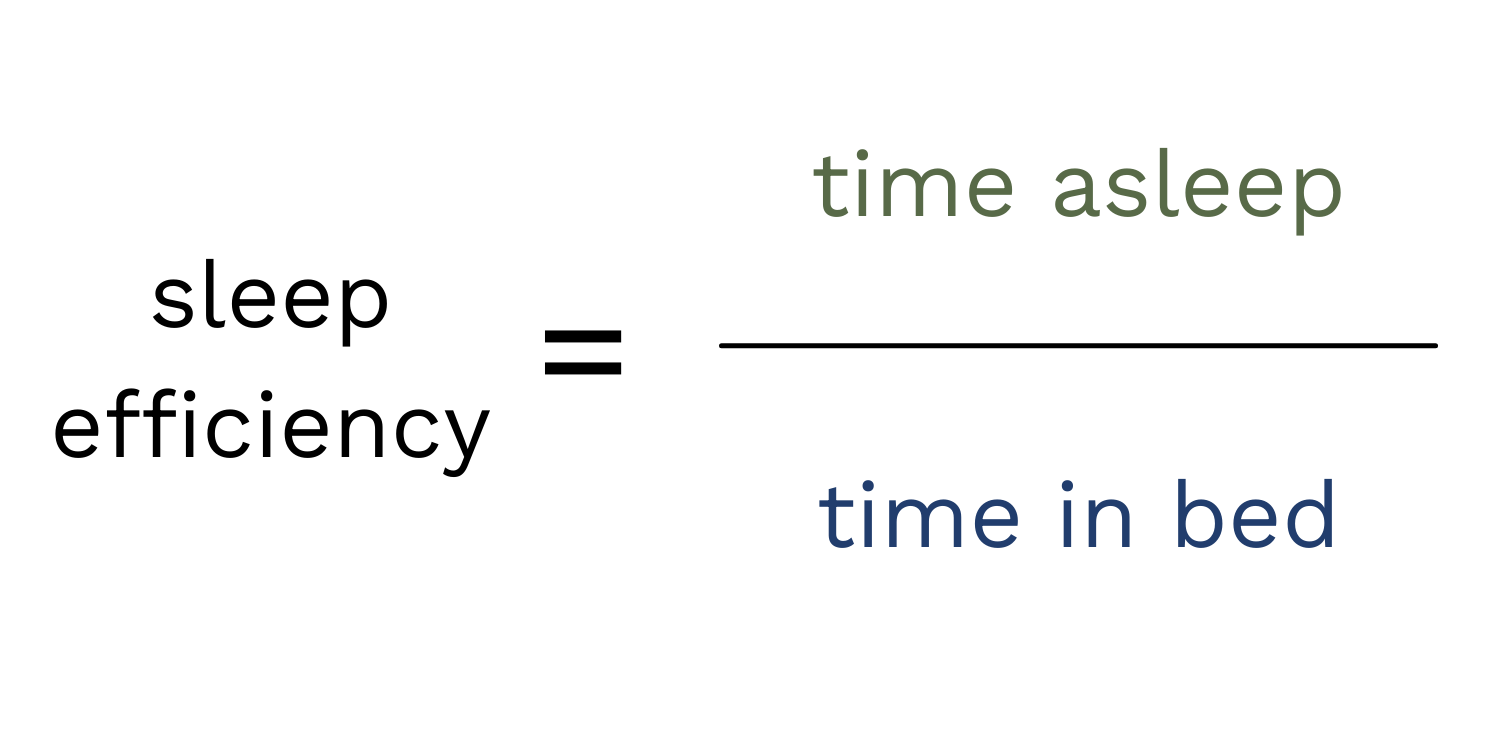
Hacking Sleep Efficiency
The metric to optimize
There are a lot of myths about what good sleep means. 💤
True or False? The more hours of sleep I get, the better.
False.
Everyone has a natural sleep need that is unique to the individual. When we try to sleep more than our natural sleep need, it can become more fragmented – it feels more shallow and less satisfying.
In addition to total sleep time, sleep specialists look at a metric called sleep efficiency: the proportion of time we are trying to sleep that we can sleep.

The sweet spot of sleep efficiency is usually between 80% - 95%. 👌
People with insomnia have lower sleep efficiency: 75% or lower.
😟 Be careful: higher is not necessarily better. When sleep efficiency is too high, that can be a sign of insufficient sleep.
True or False? Consistency is related to good sleep, so it’s best to wake up at the same time and sleep the same amount on both weekdays and weekends.
True.
Consistency strengthens the circadian rhythm and leads to better overall sleep quality. A pattern of deprivation and binging is less healthy overall.
True or False? My sleep tracker tells me how much of my sleep was deep sleep. The higher that percentage, the better my sleep.
Not quite.
The term deep sleep is a bit misleading. Deep sleep refers to a specific stage of sleep also called NREM 3.
This type of sleep helps us feel refreshed, but it is not the only type of sleep we need. Each sleep stage has a unique function.
Our body can often naturally adjust the times it needs to spend in each sleep stage.
It is not necessary to artificially increase deep sleep at the expense of other sleep stages.
References
The National Sleep Foundation. (2020) How Much Sleep Do You Really Need. Retrieved March 21, 2021
The National Sleep Foundation. (2020) How Your Circadian Rhythm Helps You Sleep. Retrieved March 21, 2021
The National Sleep Foundation. (2020) What is Sleep Quality. Retrieved March 21, 2021
Dijk DJ, Czeisler CA. (1995). Contribution of the circadian pacemaker and the sleep homeostat to sleep propensity, sleep structure, electroencephalographic slow waves, and sleep spindle activity in humans. Journal of Neuroscience. 15:3526–38
Saper CB, Cano G, Scammell TE. 2005. Homeostatic, circadian, and emotional regulation of sleep. Journal of Comparative Neurology. 493:92-98.
